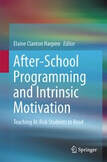I smiled. I explained that we have more than eight years of research evidence proving the methods and program that I use. I explained that:
- Students who failed under whole language in the school classroom have come to the Reading Orienteering Club—and then returned to the classroom reading at their age level. Even if a student has been retained, we emphasize sending the child back to the classroom reading at their actual age level—not grade level in school. Some children have moved up 4 grade levels in reading in one year.
- A group of students continued to fail after the school placed them in Reading Recovery, but the same students succeeded with my method of vowel clustering. They returned to the classroom reading at age level.
- Even when failing special needs students had been placed into one-on-one pull out programs in phonics and still didn’t learn to read, they came to my reading clinic and succeeded. They learned to read.
- Students who failed under “balanced literacy,” a common school program that combines whole language and phonics, also learned to read at age level using vowel clustering. We even had two students move up two grade levels in reading after only 48 hours of instruction.

- Phonemic awareness is the key to improving reading skills--intensive training in phonemes (letter sounds) allows even struggling at risk students to make significant improvement in reading (Meyler, Keller, Cherkassky, Gabrieli, & Just, 2008).
- Decoding skills are essential. Keller and Just (2009) explain it this way: “…the instruction specifically improved phonological decoding skills more than the standard reading curricula did." (Keller & Just, 2009).
- Leading reading experts Shaywitz and Shaywitz and their colleagues showed in 2004 that: “…the use of an evidence-based phonologic reading intervention facilitates the development of those fast-paced neural systems that underlie skilled reading.”
As we said under Reason #2 that reading scores have dropped, confusion and misinterpretation often lead to reading failure.
So, you see, we have actual proof of teaching methods that work with at risk struggling students in reading, and we should not let fear stand in the way of using these methods and teaching a child to read.
No, I do not recommend that we experiment with any and every new thing that gets placed on the Internet. Instead, I am suggesting that we need to turn to proven, research-based scientific teaching methods that are available.
Don’t let fear of change keep a child from learning to read.
 RSS Feed
RSS Feed
